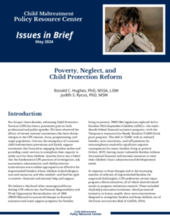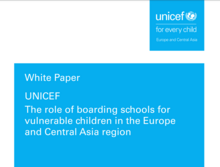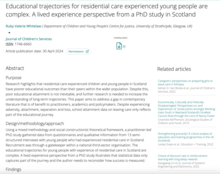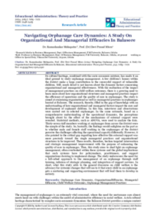Displaying 311 - 320 of 14551
Charities say FoI disclosure that 369 such children were held over 21-month period is ‘hugely concerning’.
There is global agreement (illustrated by the United Nations Convention on the Rights of the Child [1989], the most widely adopted human rights treaty) that optimal support for a child comes from a caring and protective family.
The webinar took place on 30 April 2024 and focused on Chapter IV of the Guidelines: Deinstitutionalization grounded in the dignity and diversity of persons with disabilities, and how they relate to children and other children and other at-risk populations, such as elders and women.
This interim report based in Australia focuses on hearing the lived experiences of children and young people in alternative care arrangements and lifts up the voices of those who have participated in private hearings as part of this Special Inquiry to date.
The purpose of this document is to explore why and how Child Protective Services (CPS) evolved from a highly specialized system designed to investigate and respond to allegations of serious child abuse and neglect to a system expected to provide social services and material supports to impoverished families unable to meet their children’s basic needs.
This UNICEF paper summarises evidence on the current use and impact of boarding schools in the Europe and Central Asia (ECA) region and draws on wider international evidence. It proposes a typology of boarding schools and considers the drivers for their use, as well as the concerns and challenges related to that use for vulnerable children.
Research highlights that residential care experienced children and young people in Scotland have poorer educational outcomes than their peers within the wider population. Despite experiencing adversity, attachment, separation and loss, school attainment data on leaving care only reflects part of the educational journey. This paper aims to address a gap in contemporary literature that is of benefit to practitioners, academics and policymakers.
Staff were filmed hitting, kicking and leaving special school pupils in their own urine, the BBC has found.
Do you work in a children’s home and have wondered whether moving children to family care is possible? Join Sisters worldwide to explore WHY children need families and HOW your program can safely move children to family care.  
The study is aimed at examining organizational as well as managerial practices in orphanages located at Balasore, India to understand how these factors impact the care and development of orphaned children.





